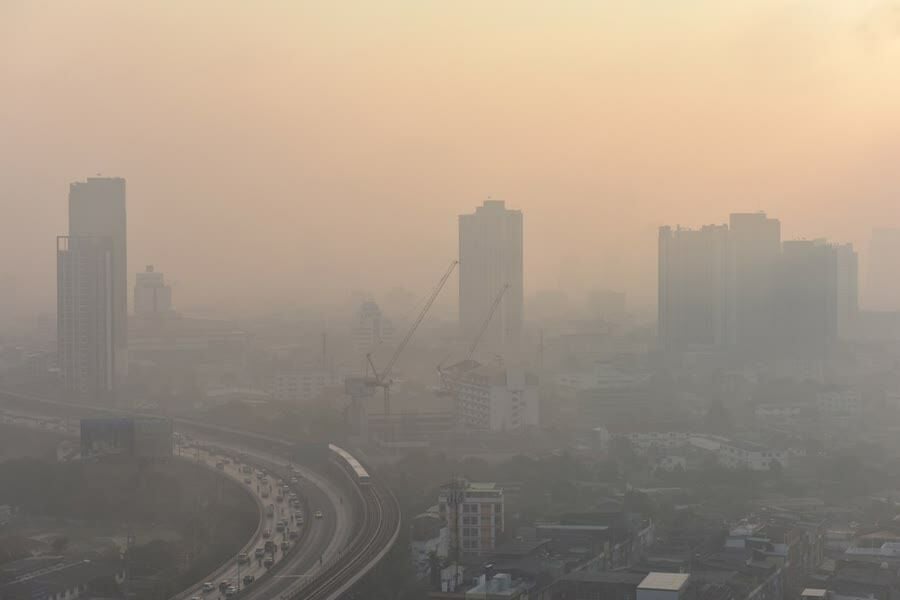Thai Ministry proposes Clean Air Act to combat rising pollution crisis

The Ministry of Natural Resource and Environment (MNRE) is set to introduce a groundbreaking Clean Air Act to address the escalating air pollution concerns that have gripped the nation.
Police General Phatcharavat Wongsuwan, the Environment Minister, revealed that a draft of the bill is currently open for public feedback on the ministry’s website until November 13. Following this, on November 16, the proposal will undergo a comprehensive review by state agencies before being presented to the cabinet on November 21.
The primary objective of the proposed bill is to mitigate pollution and streamline administrative processes to combat this prevalent issue. The focus is to eliminate obstacles to dealing with smoke from forest fires, a persistent cross-border concern. It also aims to encourage collaborative efforts through a Public-Private-People partnership to alleviate air pollution.
Emphasising the fundamental right to clean air, Pol. Gen. Phatcharavat announced the establishment of the Centre for Air Pollution Mitigation (CAPM). The CAPM will release real-time daily pollution reports and will declare an emergency if the pollution crisis worsens, reported Bangkok Post.
Deputy government spokeswoman Kenika Ounjit highlighted the government’s commitment to addressing air pollution in line with Prime Minister Srettha Thavisin’s policy guidelines. The newly established CAPM will report PM2.5 pollution daily at 8.30am via its Facebook page and raise alerts if pollution levels exceed safety thresholds.
Moreover, Pol. Gen. Phatcharavat revealed discussions on establishing a national committee focused on wildfire, smog, and haze pollution prevention. This committee will oversee the management of wildfires in agricultural areas, address transborder air pollution concerns, and collaborate with neighbouring countries to tackle regional pollution issues.
Next year, the MNRE plans to set up operation centers in 17 northern provinces, chaired by provincial governors. These centres will execute national agendas at the provincial level.
Additionally, the Bangkok Metropolitan Administration’s Environment Department reported a surge in hazardous ultra-fine PM2.5 dust pollution, ranging from 32.1-61.3 micrograms per cubic metre, reaching an unhealthy level, especially between 5am and 7am.
Latest Thailand News
Follow The Thaiger on Google News:


























